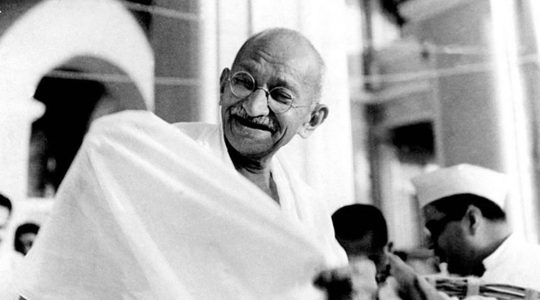Is nonviolence effective?
“Nonviolence is the greatest force at the disposal of mankind. It is mightier than the mightiest weapon of destruction devised by the ingenuity of man.”
Gandhi
October second of this year marked the 153rd birthday of Gandhi. Mahatma Gandhi, as he is popularly known, is one of those rare people in history who does not need any introduction. His legacy lives on even seven decades after his martyrdom.
Gandhi’s ideologies are at once innovative and demanding. They have attracted as many critics as followers. Even in his own country, which he worked to uplift and free from the clutches of colonialism, Gandhi is brutally criticized.
One of the seething criticism is that his ideals were utopian. Gandhi’s affiliation with nonviolence is most ridiculed. Critics believe that revolutions need to be a blood bath to effect change. They think Gandhi’s success with nonviolence was just a matter of luck.
But is this true? Today empowered by data, we can find the truth behind such accusations. Fortunately, there was an extensive study conducted along these lines.
On his birthday, let us analyze whether Gandhi’s life-long passion is an effective strategy as he believed it to be.
Study on nonviolence
Erica Chenoweth, a Professor of Human Rights and International Affairs at Harvard Kennedy School, was to attend a workshop during her predoctoral days. The debate between those who support a violent protest and those who support nonviolence seemed childish to her. She believed armed protests are better than a nonviolent approach. But when she started collecting data, she was astonished.
Erica found that nearly 75% of all nonviolent protests achieved their goal. Compared to the 33% of the violent protests that became successful, the rate is more than double! Intrigued, Chenoweth collected data of all protests dating from 1900 to 2006 and found pacifism incontrovertibly more effective.
She, with her colleague Maria J Stephan, published the findings in the book, “Why Civil Resistance Works: The Strategic Logic of Nonviolent Conflict.”
Long-term effects of nonviolence
The study considered 160 variables related to success criteria, participant category, and state capacity, among other factors. The data sets were collected and scrutinized exhaustively before coming to conclusions. All the findings affirm the effectiveness of nonviolent protests above armed insurgencies.
But there is more to the study. After considering 323 mass protests worldwide, Chenoweth made a truly amazing statement. She says even those failed nonviolent protests only failed in the short term. Drawing the example of the Kefaya movement in Egypt and the Saffron movement in Myanmar—both considered failures—she argues that they brought about some significant changes. In essence, they were not a complete failure in the long term.
Drop your arms
It is only human to resist someone who twists our hand halfway up our back. On the contrary, someone who shakes our hand and asks gently is likely to get a favorable response. The same psychology applies to violent and nonviolent protests.
Chenoweth’s study vindicates Gandhi from the judging eyes of the warmongers. It proves his views are legitimate and a lifetime of effort meaningful.
At least now we can stop sniggering at Gandhi’s views and start listening to his melodious odes of pacifism. Let us work shoulder to shoulder to build a world free from hatred and violence.
Thank you for reading. Please post your thoughts below.

Yes, to rid our lives of the hatred, the violence, all things that keep us trapped in despair.
Thank you expressing and … HAPPY BIRTHDAY Gandhi!!!